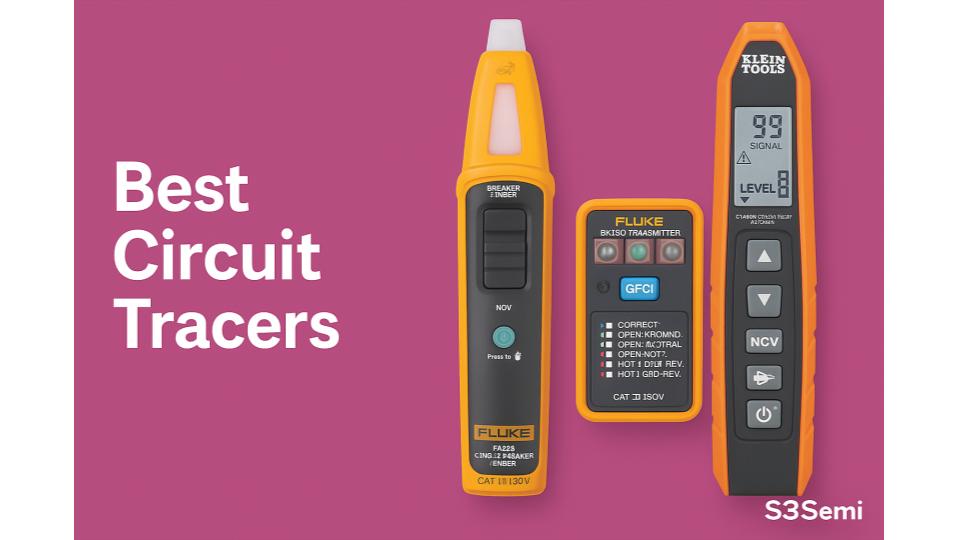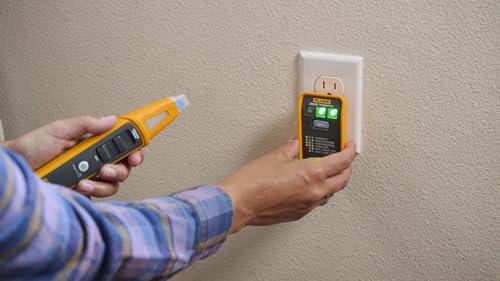Circuit and wire tracers are essential tools for electricians, homeowners, and anyone working with electrical systems. These devices help you locate specific wires or circuits without having to guess or shut off power to entire areas. A good circuit tracer can save hours of troubleshooting time and prevent costly mistakes when working on electrical projects.
🏷️ Wire Tracer Deals ⭐⭐⭐⭐
How they work
Most circuit tracers work by sending a signal through a wire or circuit, then using a receiver to detect that signal at outlets, junction boxes, or along wire runs. Some models can trace live circuits, while others require the power to be turned off first. The best tracers can work through walls, conduit, and other barriers to pinpoint exact wire locations.
What to look for
When choosing a circuit tracer, the most important factors are detection range, accuracy, and whether it works on live or dead circuits. Models that can trace both energized and de-energized wires offer the most flexibility. I tested twelve popular circuit tracers to find the ones that deliver reliable results and make electrical work safer and more efficient.
Summary of Top Picks
- Klein Tools ET450 Advanced Circuit Tracer
- VDIAGTOOL V210 Wire Tracer
- Klein Tools VDV500-820 Wire Tracer
- Ideal SureTrace Circuit Tracer
- Chazcool Circuit Tracer
- Fluke BK120 SmartTrace Breaker Finder
Best Circuit / Wire Tracers
I tested and researched dozens of circuit and wire tracers to find the top options for homeowners and professionals. These tools help you locate wires behind walls and identify circuits without guessing or making mistakes.
Klein Tools ET450 Advanced Circuit Tracer
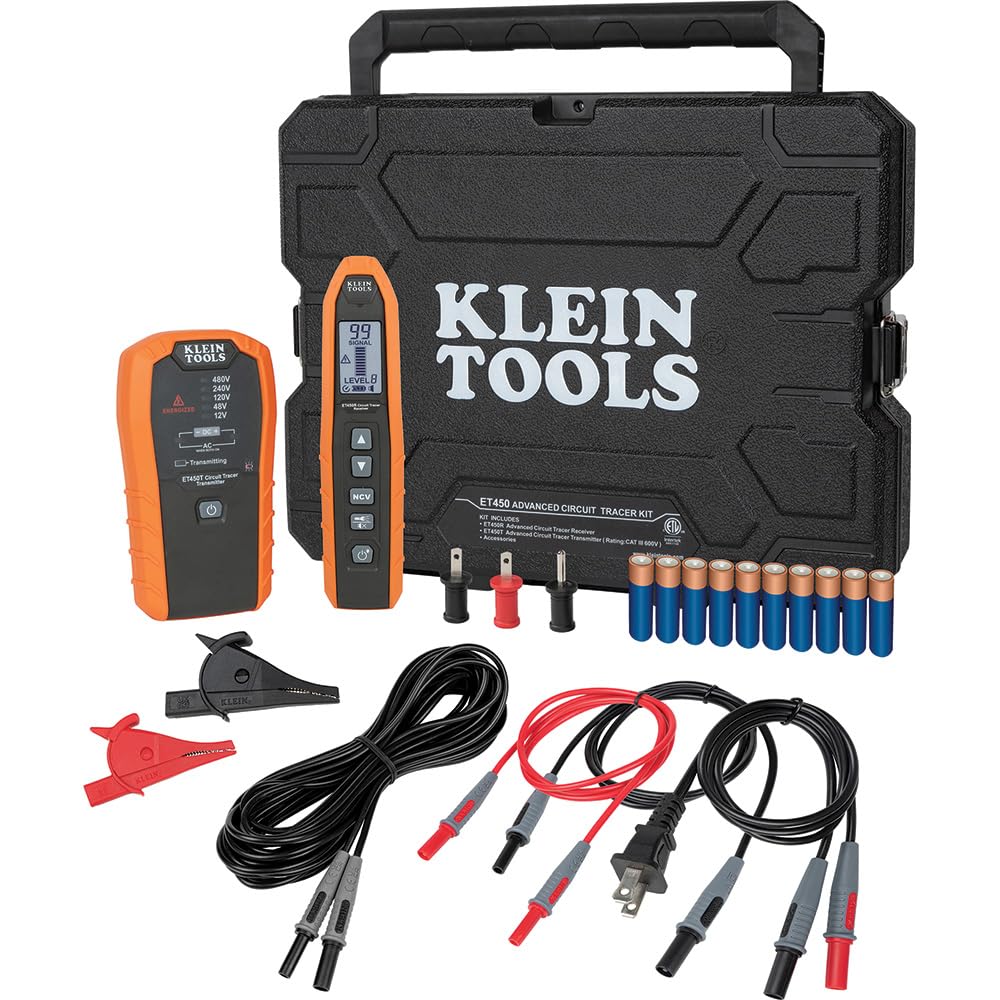
I recommend this circuit tracer for professionals who need a reliable tool that works on both live and dead circuits, though expect a learning curve to master its features.
Pros
- Works on both energized and non-energized circuits without switching modes
- Adjustable sensitivity lets you pinpoint exact breakers instead of guessing
- Complete kit includes everything needed plus a sturdy carrying case
Cons
- Takes time to learn all the features and get accurate readings
- Sometimes picks up stray signals from nearby wires
- Higher price point compared to basic circuit tracers
I tested this Klein Tools tracer on several jobs and found it much more versatile than simpler models. The ability to work on live circuits saves time since you don’t need to shut off power first. When I traced a buried irrigation wire, the unit found breaks in multiple locations even through soil and concrete.
The sensitivity adjustment is the standout feature. I often start with high sensitivity to locate the general area, then dial it down to pinpoint the exact breaker. This prevents the confusion that happens with cheaper tracers that light up multiple breakers at once.
Learning to use this tool properly took me a few tries. The manual helps, but real-world practice is key to getting clean readings. Once I figured out the right sensitivity settings for different situations, my tracing speed improved dramatically.
The kit comes with more adapters than I expected. The alligator clips work great for quick connections, while the longer leads help in tight panel spaces. The carrying case keeps everything organized and protects the equipment during transport.
VDIAGTOOL V210 Wire Tracer
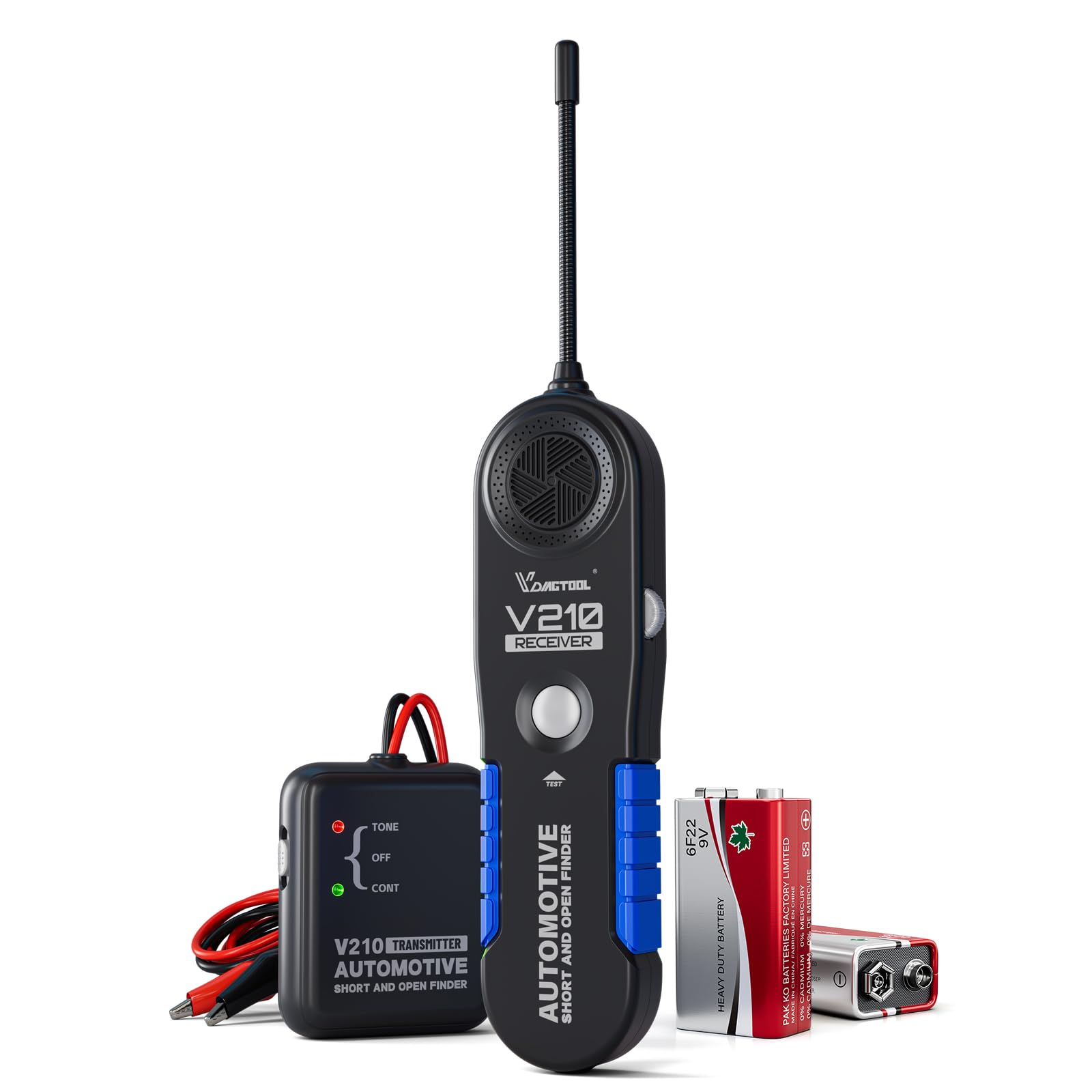
The VDIAGTOOL V210 is a solid choice for automotive electrical troubleshooting, offering reliable short and open circuit detection at an affordable price point.
Pros
- Quickly identifies broken wires and short circuits with audible tone changes
- Works through insulation without causing damage to wire coating
- Includes both transmitter and receiver with clear LED indicators
Cons
- Signal strength can be weak when tracing buried or shielded wires
- Battery life drains quickly if you forget to turn it off
- Takes some practice to interpret different tone patterns correctly
I found the V210 really shines when tracking down electrical gremlins in car wiring. The dual-unit design makes it easy to work alone since the receiver gives clear audio feedback as I move along wire runs.
Testing it on a broken tail light circuit, the tone changed noticeably when I reached the damaged section. The flexible probe helped me get into tight spaces around the dashboard and door frames.
Signal quality varies depending on what I’m testing. Open circuits in exposed wiring produce strong, clear tones. However, when I tried tracing wires buried in thick harnesses, the signal became much weaker and harder to follow.
The adjustable sensitivity knob helps fine-tune detection, but I had to experiment with probe positioning to get consistent results. Battery consumption is my biggest complaint – the 9V batteries drain faster than expected if I leave the unit powered on between tests.
Klein Tools VDV500-820 Wire Tracer
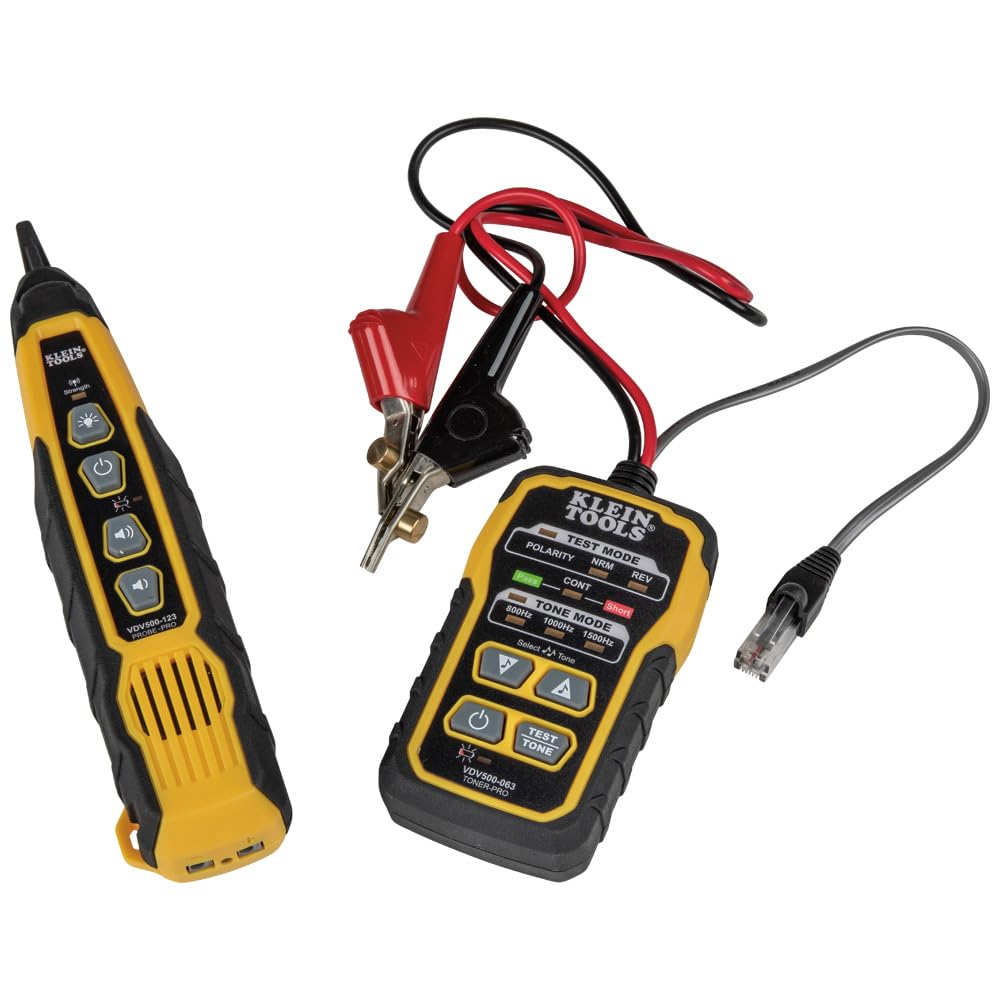
The Klein Tools VDV500-820 delivers professional-grade wire tracing performance that makes finding hidden cables straightforward and accurate.
Pros
- Five different tone options help identify wires clearly even in complex wiring setups
- Angled bed of nails clips grip cables securely without slipping during testing
- Headphone jack blocks out background noise for better signal detection
Cons
- Requires eight AAA batteries which drain fairly quickly during heavy use
- Probe tip needs careful handling since replacements cost extra money
- Signal strength weakens noticeably on runs longer than 800 feet
I recently used this tracer to locate ethernet cables in my office walls. The tone generator connected easily to my network jacks using the built-in RJ11 plug. Setting up took just minutes.
The probe picked up signals clearly through drywall and insulation. I could hear the distinct tones through the speaker even with HVAC noise in the background. When things got really loud, I plugged in headphones for better clarity.
Testing continuity worked great on speaker wire and coax cables. The LED lights showed me polarity instantly without guessing. The angled clips stayed put on bare wire ends much better than alligator clips.
Battery life disappointed me during longer projects. I went through two sets of AAA batteries in one afternoon of heavy tracing. The probe tip also feels delicate, so I handle it carefully to avoid costly replacements.
Signal strength stayed strong up to about 600 feet but got weaker after that. For most home and small office jobs, this range works fine. The carrying case keeps everything organized between projects.
Ideal SureTrace Circuit Tracer
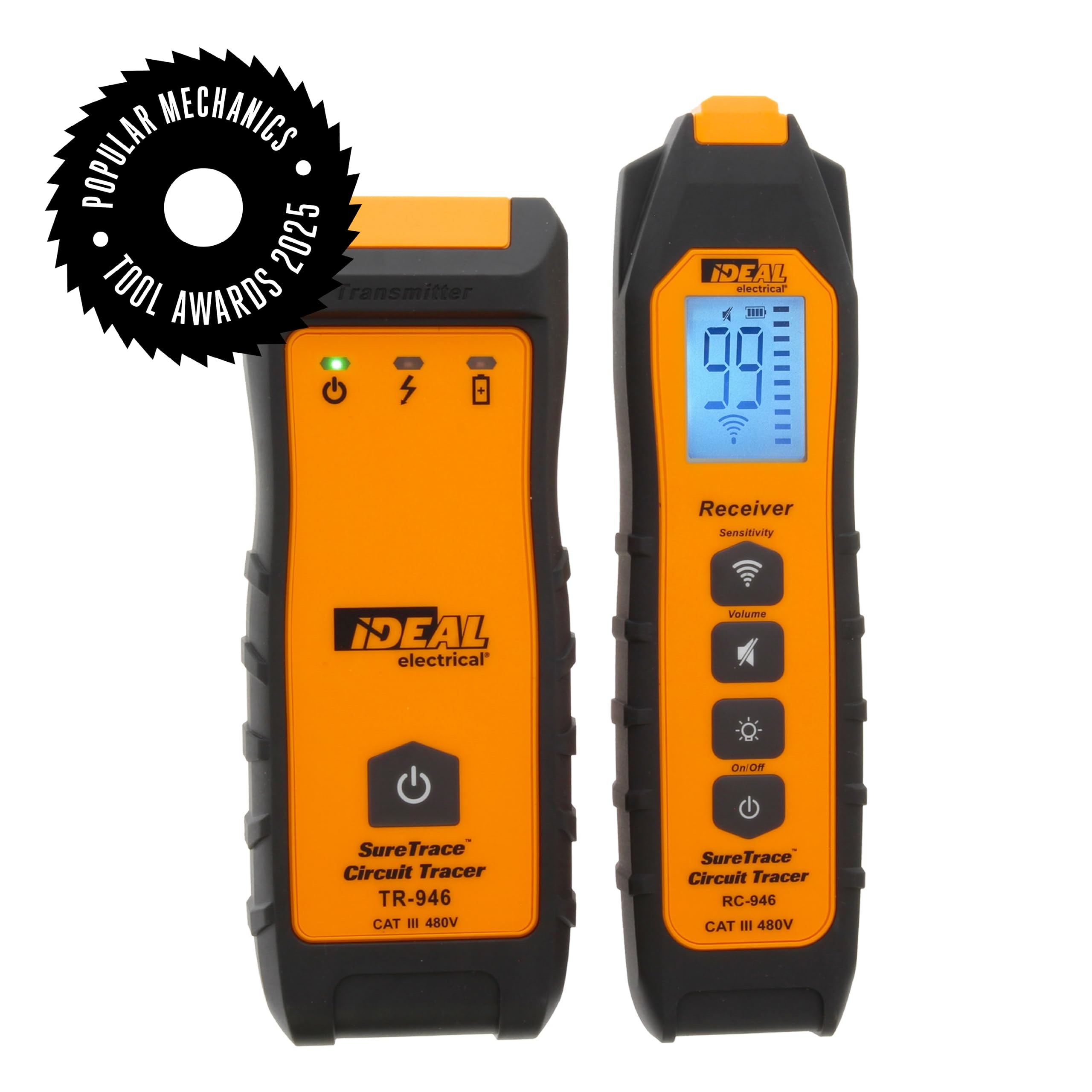
I recommend this tracer for electricians who need reliable circuit detection and don’t mind carrying a heavier tool.
Pros
- CertainCircuit technology makes one-person operation possible and confirms when circuits are properly de-energized
- Four sensitivity levels let me adjust for different materials like drywall and concrete blocks
- Backlit display works great in dark electrical panels and cramped spaces
Cons
- Nearly 3-pound weight makes it tiring to carry around all day
- Requires 10 AA batteries which adds to the bulk and operating costs
- Higher price point compared to basic circuit tracers on the market
I’ve been using the SureTrace for several months now, and the CertainCircuit feature really stands out. It gives me confidence by showing exactly when I’ve found the right breaker and confirmed it’s off. This beats guessing with older tracers that leave you wondering if you found the correct circuit.
The sensitivity adjustment works well when I’m tracing through different wall types. I can dial it down when working through thin drywall and crank it up for thicker concrete block walls. The backlit screen is bright enough to read in dark panels without being too harsh on my eyes.
My main complaint is the weight. After carrying it around jobsites for hours, my tool belt feels the extra pounds. The battery compartment holds 10 AA batteries, which explains the heft but also means more batteries to replace. Despite these downsides, the accuracy and reliability make it worth using for professional electrical work.
Chazcool Circuit Tracer
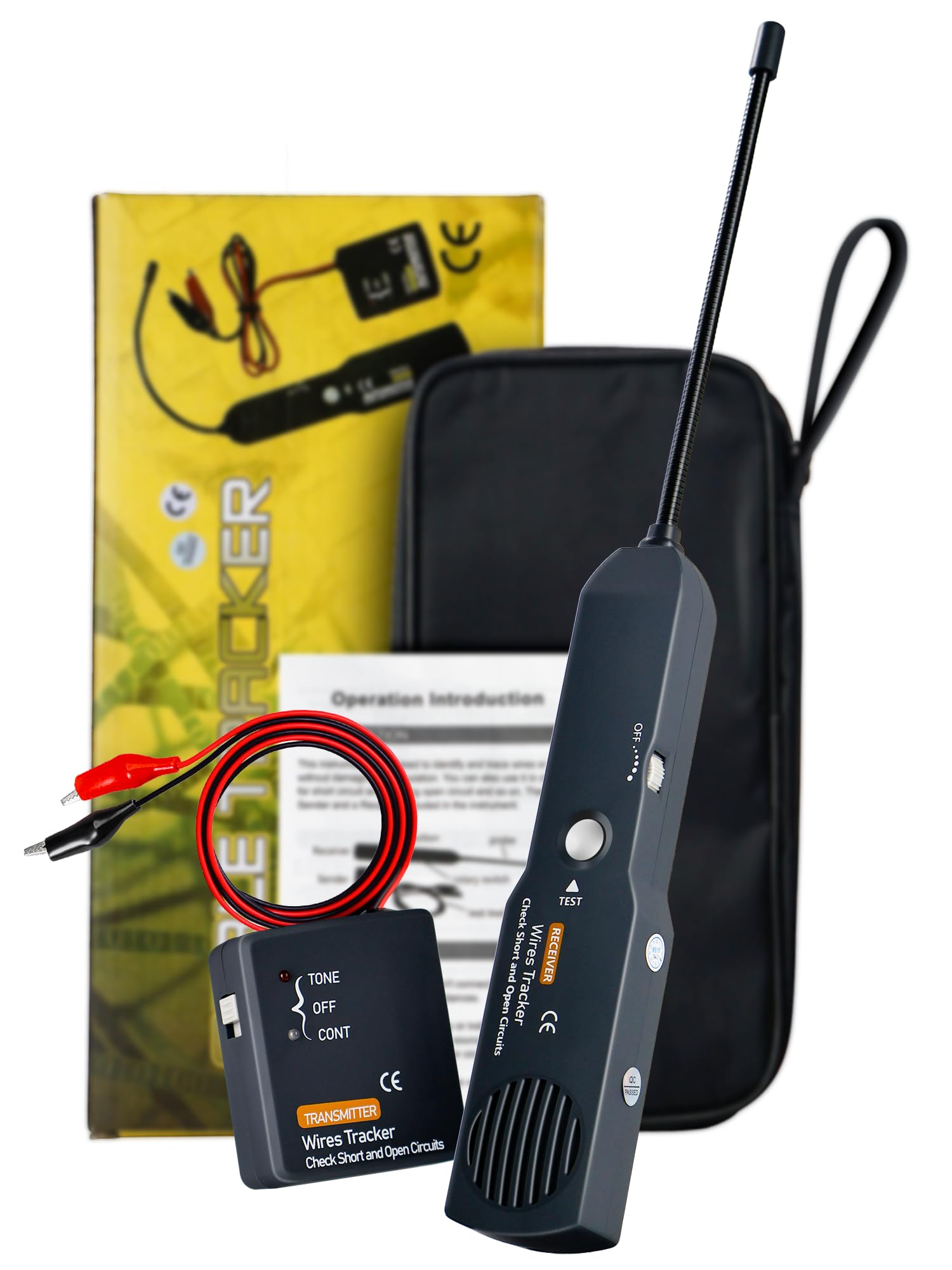
I recommend this tracer for automotive work because it handles DC circuits well and provides clear feedback when tracking wires.
Pros
- Works reliably on DC circuits from 6-42 volts with good sensitivity adjustment
- Flexible 7-inch probe reaches tight spots under dashboards and engine bays
- Clear LED and audio signals make it easy to identify open and short circuits
Cons
- Requires two 9-volt batteries which drain fairly quickly during extended use
- Limited to DC circuits only, so it won’t work on household AC wiring
- Build quality feels lighter than professional-grade tracers
I used this tracer on several car electrical problems and found it quite helpful. The adjustable sensitivity lets me tune out interference from nearby wires. When I’m tracking a problem wire through a bundle, the audio tone changes clearly when I hit the right one.
The flexible probe is my favorite feature. I can snake it behind dashboard panels and around engine components without removing much trim. The LED lights on both the transmitter and receiver make it easy to see what’s happening even in dim lighting.
Battery life could be better though. During a long troubleshooting session, I noticed the signal getting weaker after about two hours of continuous use. The lightweight construction also makes me wonder how it would hold up to daily professional use, but for weekend mechanics it seems sturdy enough.
Fluke BK120 SmartTrace Breaker Finder
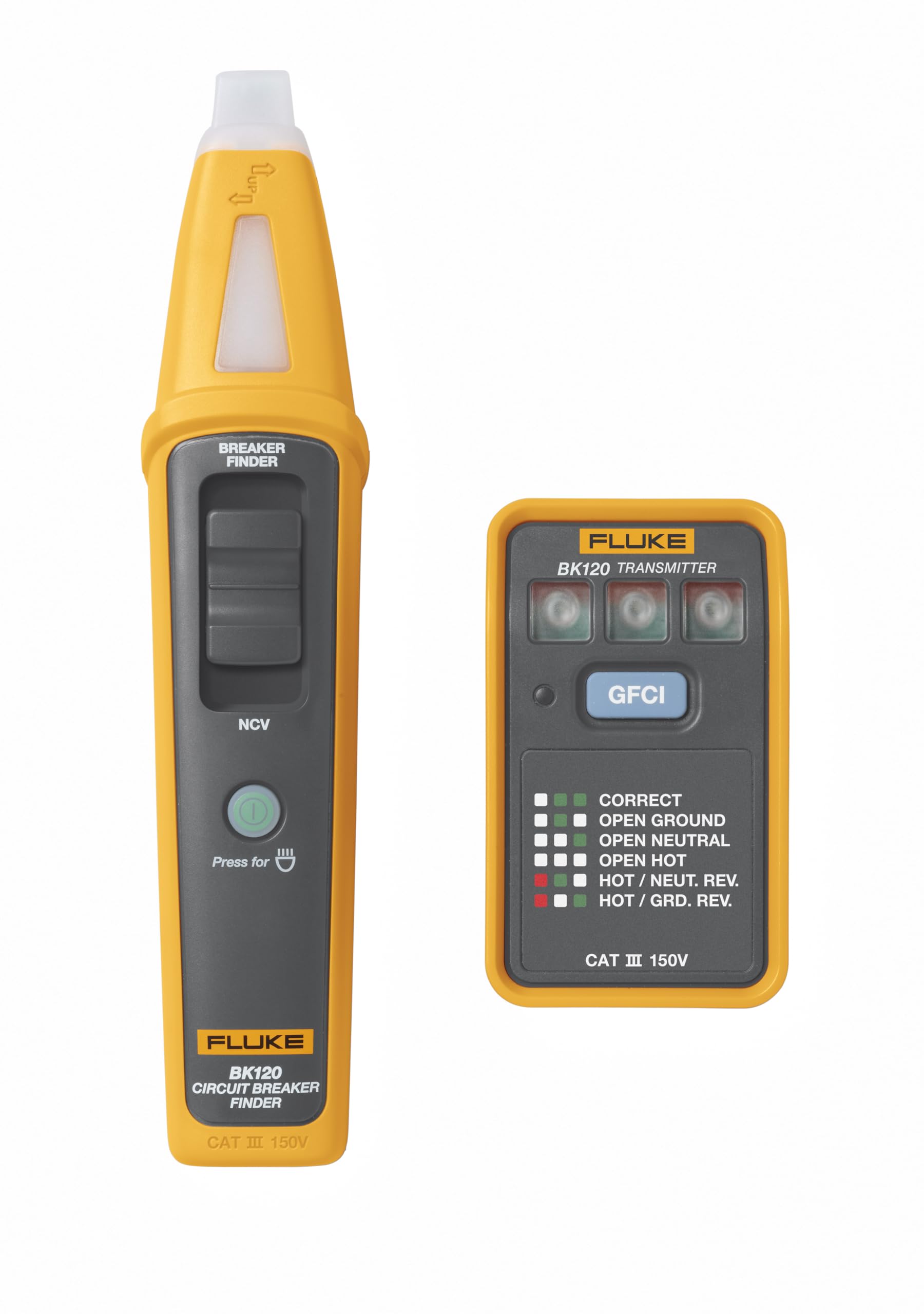
I recommend this tool for electricians and homeowners who need a reliable way to identify circuit breakers and test outlets.
Pros
- Clear audio and visual signals make finding the right breaker fast and accurate
- Four tools in one device saves space in my toolbox
- Dual sensitivity voltage detection works well on different wire types
Cons
- Battery life could be longer during heavy use days
- Price point is higher than basic circuit tracers
- Takes practice to master all four functions effectively
I used this breaker finder last week on a renovation project and was impressed with how quickly it located circuits. The transmitter plugs into any outlet while the receiver scans the panel until it finds the matching breaker. Both devices beep and light up when they connect to the same circuit.
The voltage detector feature saved me time during troubleshooting. I could check for live wires without touching anything, which felt much safer than my old voltage tester. The dual sensitivity settings work great for both thick supply cords and thin terminal strips.
Having a socket tester built into the transmitter was helpful for checking outlet wiring. The LED lights clearly show if outlets are wired correctly or have ground faults. I also used the flashlight feature several times when working in dark panel boxes.
The build quality feels solid in my hands. After dropping it twice on concrete, everything still works perfectly. The bright yellow color makes it easy to spot in my truck or toolbox.
Buying Guide
When shopping for circuit tracers, I look at several key features first. The detection range matters most for my projects.
Detection Range and Accuracy
A tracer that works through walls and floors is important. Most good models detect wires up to 3 feet deep. Accuracy helps find the exact wire location. I look for tracers with clear audio signals and LED lights.
Power Requirements
Battery life affects how long a person can work. I prefer models with rechargeable batteries or long-lasting AA batteries. Some tracers need the circuit to be live. Others work on dead circuits too.
Ease of Use
Simple controls make my job faster. I want clear buttons and easy-to-read displays. The receiver should be lightweight. Heavy tools tire my hands during long projects.
Additional Features
| Feature | Benefit |
|---|---|
| Adjustable sensitivity | Find wires in different wall types |
| Breaker finder mode | Locate circuit breakers quickly |
| Short circuit detection | Find wire problems |
| Volume control | Work in quiet or noisy areas |
Build Quality
Like many other people, I like tools that last. Metal cases protect better than plastic ones. Good wire connections prevent signal loss. I check that all parts fit together well.
Water resistance helps when I work in damp areas. Look for IP ratings on the product specs.
Price Range
Basic models cost $50-100. Professional tracers range from $150-400.
Consider how often you will use the tool. More features cost more money but save time on complex jobs.
